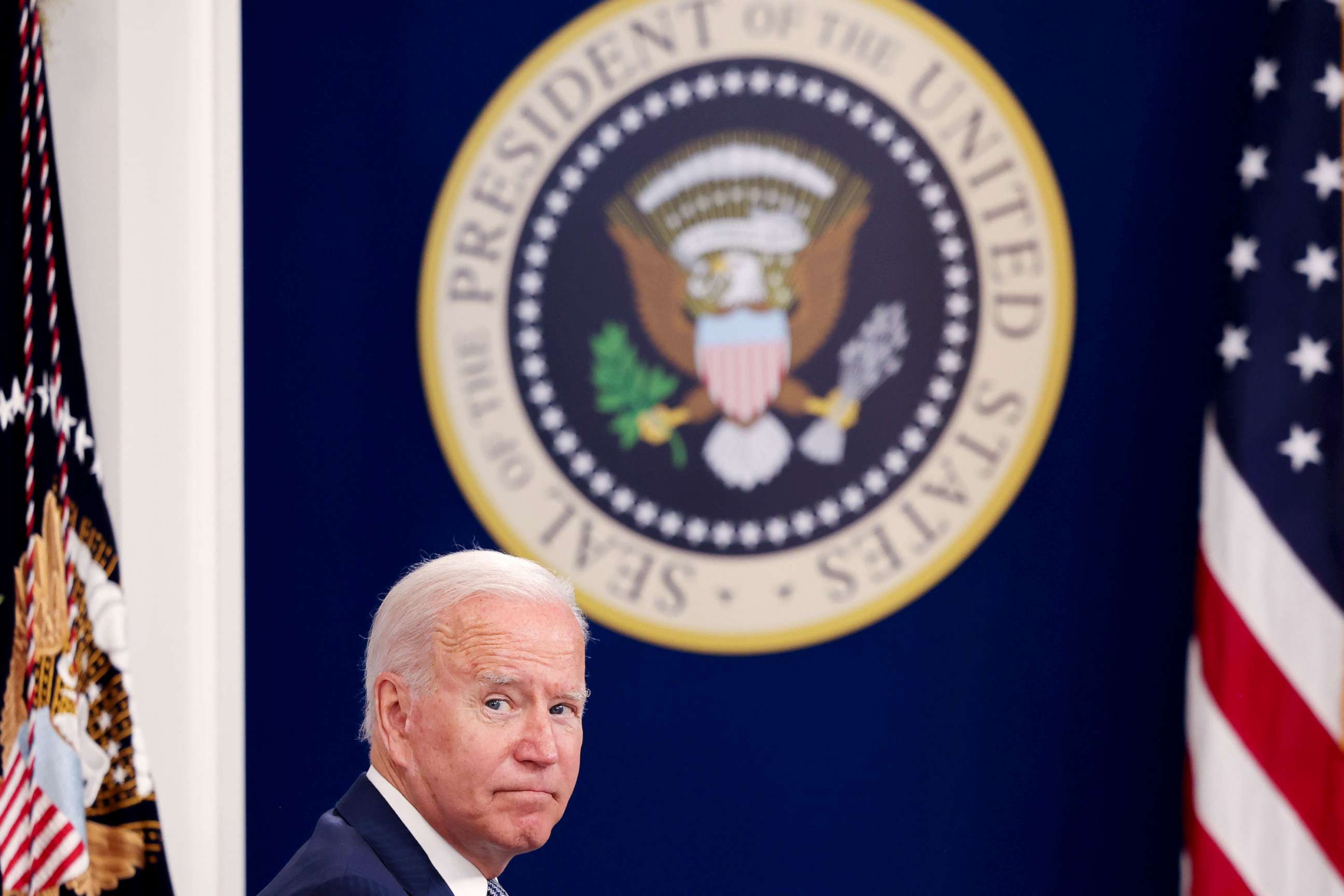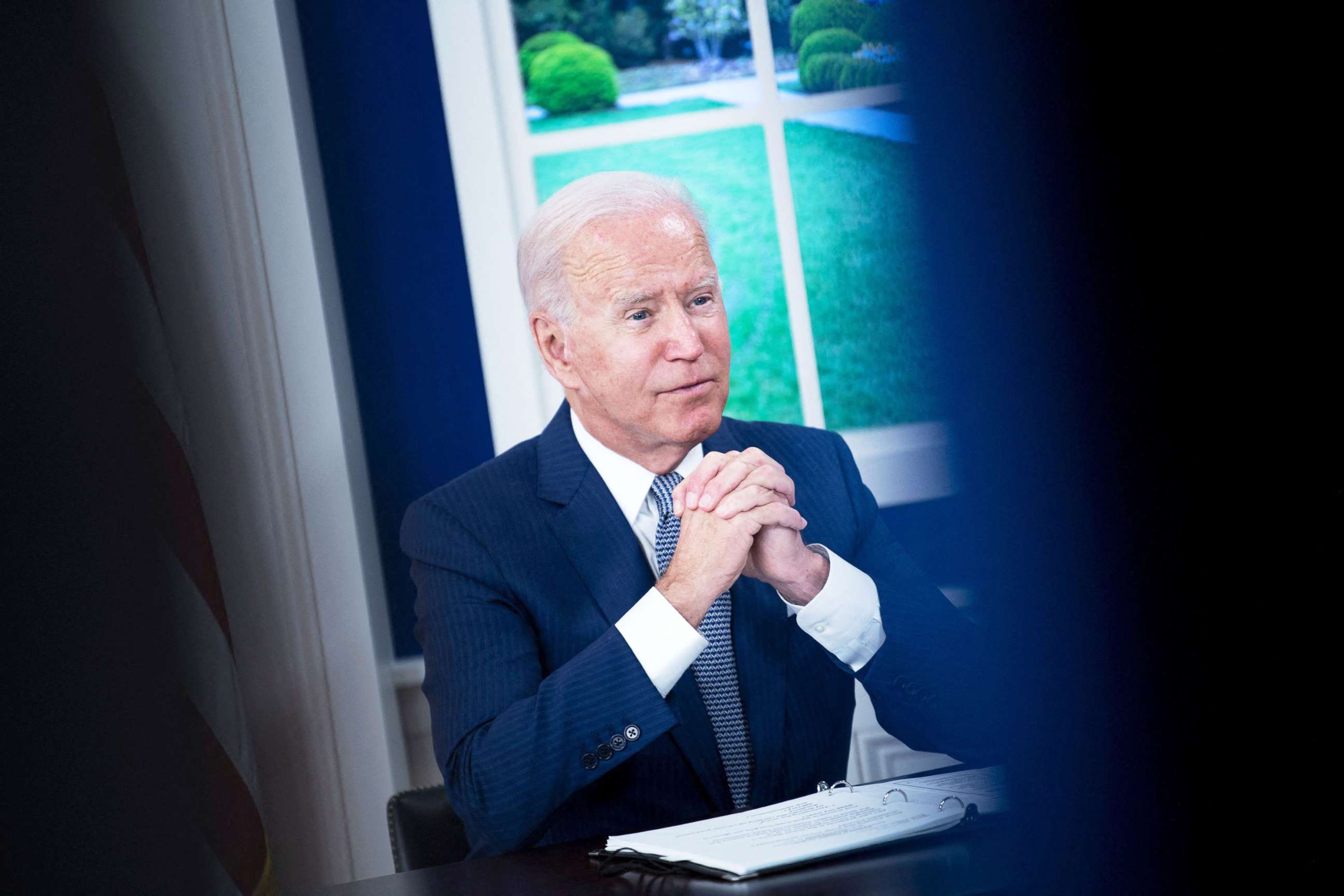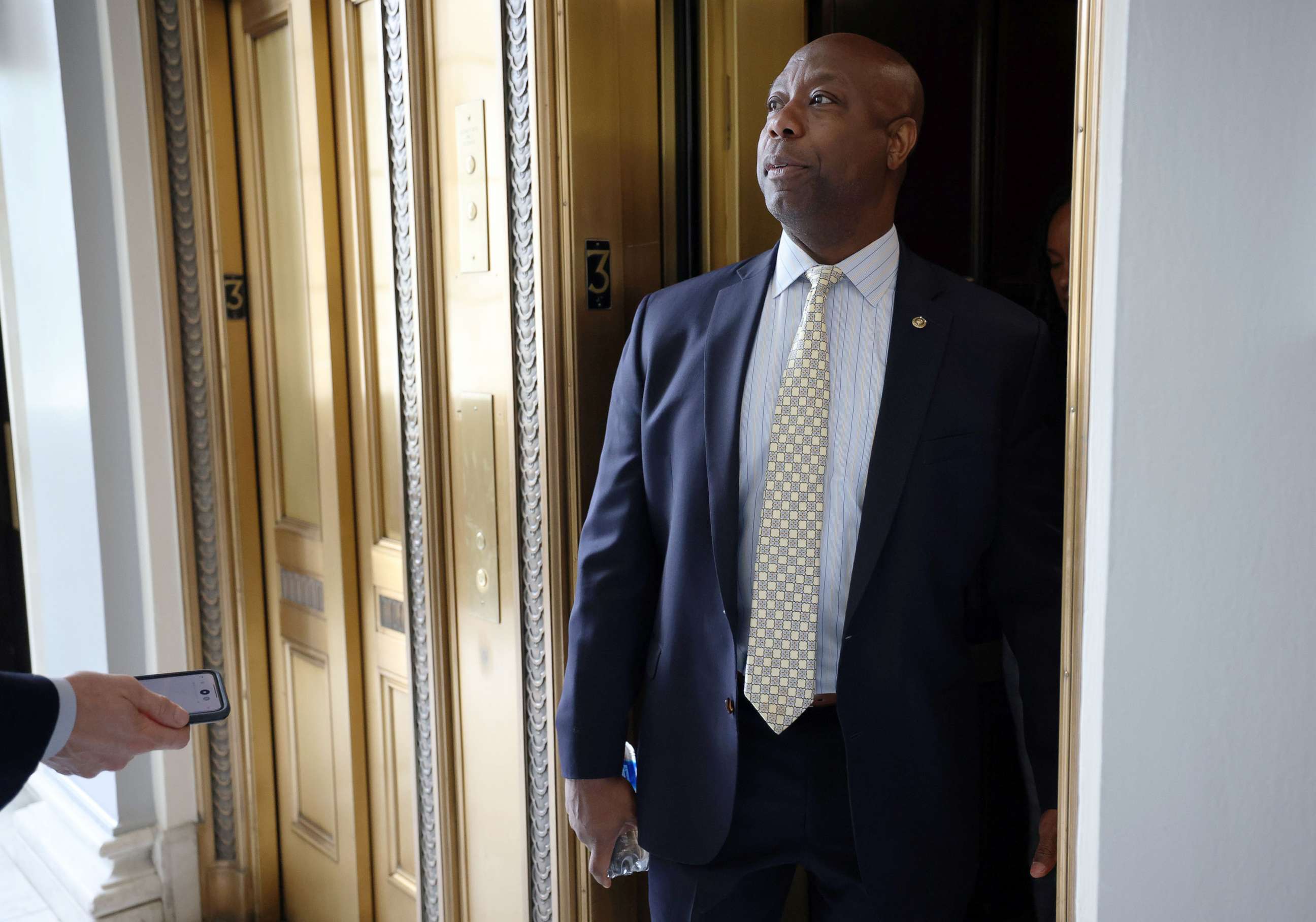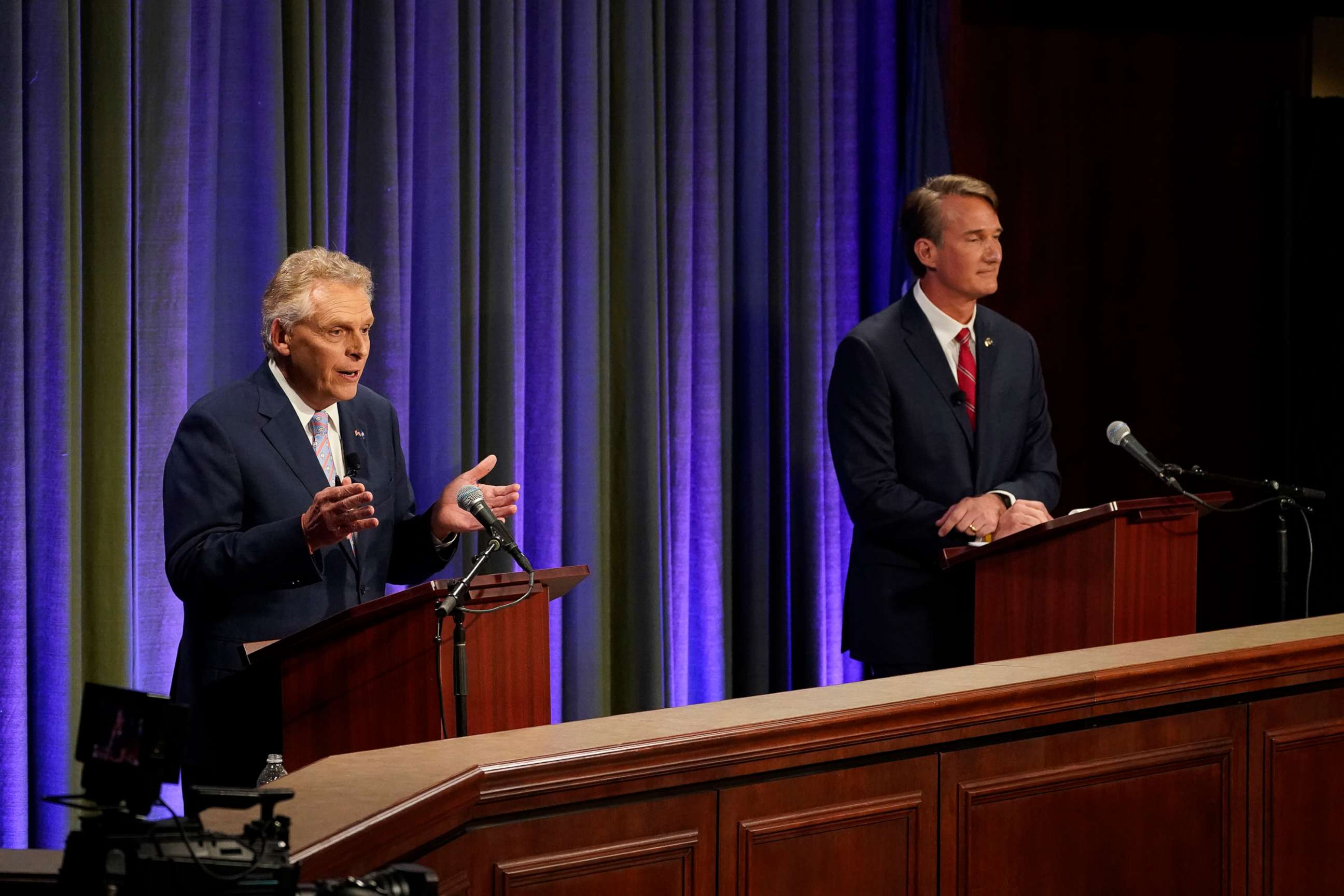Biden confronts diminishing sway as deadlines near: The Note
Dems can't agree on how the vast pieces of Biden's agenda should fit together.
The TAKE with Rick Klein
These are not new divisions or new questions or even new players trying to figure them out.
Still, virtually all of the rest of the Biden agenda now hangs in the balance primarily because Democrats can't agree on how the vast pieces should fit together. Meanwhile, deadlines that could cut off government funding and force a default on U.S. debt are drawing closer.

With the White House praising "productive and candid meetings" between the president and congressional Democrats Wednesday, what's notable about this moment is how many factions inside the Democratic Party are still stating publicly what they are not willing to vote for. That's despite the fact that one of the few things they virtually all can agree on is that doing nothing is not a smart option for the country or their own political prospects.
The memo sent to Democratic offices in the House and Senate by John Podesta, the former White House chief of staff and longtime party guru, is blunt: "The historical trend makes it clear that Democrats will face severe headwinds next November, but nothing will guarantee a political reckoning faster than if the Democrats fail to pass anything."

It all was and would still be tough enough if President Joe Biden was at the peak of his political sway. The polling numbers making the rounds on Capitol Hill and beyond, though, show something else.
Take the new Gallup poll, which has Biden's approval rating clearly underwater and at just 37% among independents. Or take the new Des Moines Register poll of Iowa -- a state Biden lost in 2020, but won twice when former President Barack Obama was atop the ticket -- showing Biden's approval rating down 12 points there just since the start of summer.
Biden hasn't wanted to say "no" in a quest to get to plenty of "yes" votes. It will be up to him -- not House Speaker Nancy Pelosi or Senate Majority Leader Chuck Schumer -- to make sure Democrats act like they agree.
The RUNDOWN with Averi Harper
More than a year after the murder of George Floyd at the hands of a Minneapolis police office, bipartisan negotiations on police reform are over. Even after his killing ignited a movement from coast to coast, nothing -- legislatively at least -- has changed.
"I was going to D.C. for Biden to sign a bill, Biden has not signed that bill, Biden broke a promise," said Bridgett Floyd during a rally in Minneapolis on the anniversary of her brother's death, while much of her family met with Biden at the White House.
"My message to the president: get your people in order," she added.
The order she called for never materialized and Biden's promise to bring transformative change in policing remains unfulfilled.

Republican negotiator Sen. Tim Scott, R-S.C., blamed Democrats for abandoning talks. Democrats and Biden himself blamed Republicans for rejecting key reforms outlined in the policy.
"I still hope to sign into law a comprehensive and meaningful police reform bill that honors the name and memory of George Floyd, because we need legislation to ensure lasting and meaningful change," said Biden in a statement. "But this moment demands action, and we cannot allow those who stand in the way of progress to prevent us from answering the call."
So far, the Biden administration has allowed Republican obstruction to block reform, but the clock is ticking. As the midterms loom, so does the possibility that Democrats lose their narrow grip on both chambers of Congress. Without the political will from Republicans to engage on the issue, the notion of federal police reform could be beyond reach.
The TIP with Alisa Wiersema
The battle over voting rights has become a top rallying cry for Democrats amid concerns of retaining their majority in next year's midterm elections. The competitive gubernatorial race in Virginia is further adding urgency to the party's efforts to organize voters to the polls.
One of the party's most high-profile faces, Michelle Obama, will join activists in a virtual voter registration rally on Thursday to urge voters and volunteers "to head back to the ballot box this fall and in 2022." The rally will be the first of many events seeking to counteract "harmful voter suppression tactics" that "will negatively impact Americans' freedom to vote," according to a statement from When We All Vote, the group hosting the event.

Other groups are mobilizing in the same vein -- on Wednesday, Building Back Together, a nonprofit group that backs Biden's agenda, announced a partnership with several progressive, Latino and Asian advocacy groups by launching the Language Justice Committee. Together they aim to "tackle the language access barriers" at the ballot box, with a specific focus on Latino, Asian and Native American voters.
The goals expressed by these groups are a response to the actions by Republican leaders in states like Georgia and Texas. But Democrats' mobilization efforts are also a tacit indication of the struggles their own party is encountering in Congress over federal voting rights reform.
ONE MORE THING
The House committee investigating the Jan. 6 attack on the U.S. Capitol could issue its first subpoenas in the coming days, possibly targeting several former high-level aides to President Donald Trump for records and information, sources told ABC News. https://abcn.ws/3nUphhL
THE PLAYLIST
ABC News' "Start Here" Podcast. Thursday morning's episode features a University of North Carolina at Chapel Hill epidemiologist on models that are showing COVID infections, slowly but drastically, dropping between now and March. Then, ABC News Congressional Correspondent Rachel Scott reports from the Capitol as President Joe Biden's agenda is threatened by Democratic infighting. And, ABC News Chief Business and Economics Correspondent Rebecca Jarvis tells us why issues in the supply chain are already affecting holiday shopping. http://apple.co/2HPocUL
WHAT YOU NEED TO KNOW TODAY
Download the ABC News app and select "The Note" as an item of interest to receive the day's sharpest political analysis.
The Note is a daily ABC News feature that highlights the day's top stories in politics. Please check back tomorrow for the latest.




